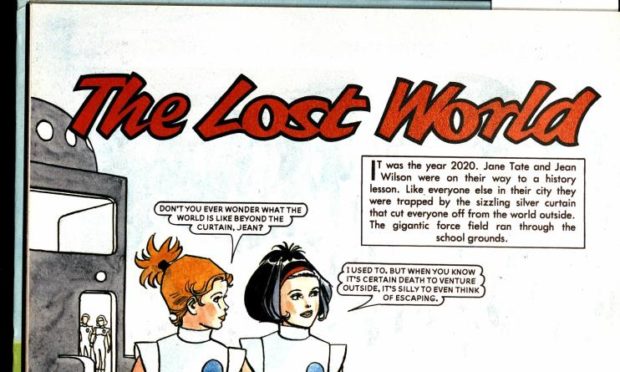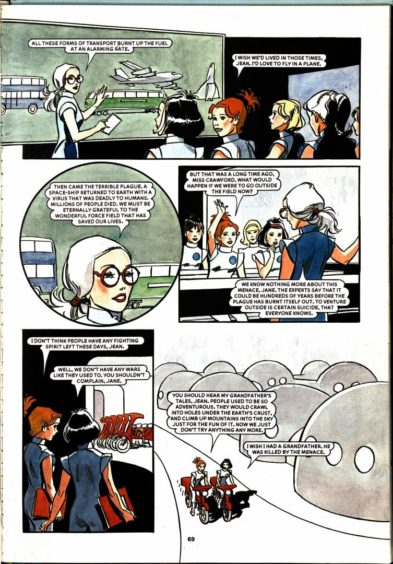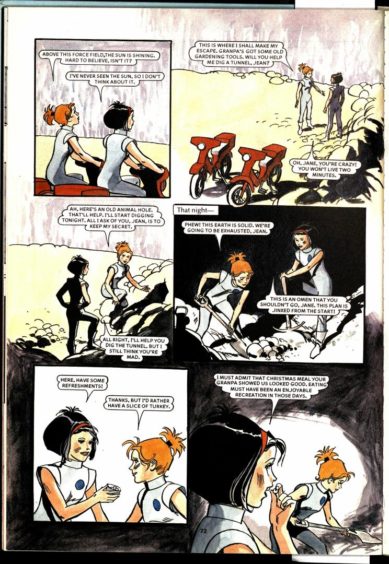A girls’ annual from the late 1980s illustrating a coronavirus-like “terrible plague” in 2020 has been unveiled.
The 1987 Bunty annual, produced by DC Thomson, featured a sci-fi cartoon strip called The Lost World, where two teenage girls survive on a planet decimated by a “virus deadly to humans”.
Jane and Jean live beneath a force field that protects them from the virus and has “cut everyone off from the world outside”. There is also a ban on travelling between cities and countries.
In one image, their history teacher tells them about the “terrible plague”, adding: “Millions of people died.
“We must be eternally grateful to the wonderful force field that has saved our lives.”
The comic details life in the new world beneath the force field, with the characters pondering what goes on above but fearing “certain death” if they escape
The teacher also warns about the uncertainties of the plague, adding: “The experts say that it could be hundreds of years before the plague has burnt itself out”.
One character laments what Christmas dinners were like before the deadly virus ended life as they knew it and another section shows a mother struggling to find a Christmas tree as the shops are all closed.
Bunty was published between 1958 and 2001. The story was discovered by the daughter of Dr Emily Munro, an archivist at the National Library of Scotland.
Dr Munro has been tweeting images from the comic this week, noting the parallels with life in 2020.
In the Bunty world, there’s a twist yet to have been suggested as the origin for Covid-19 – this virus was brought back by a spaceship returning to Earth.












